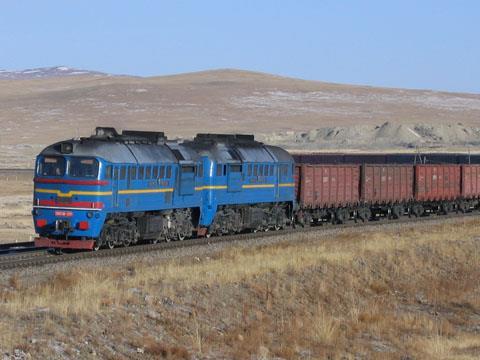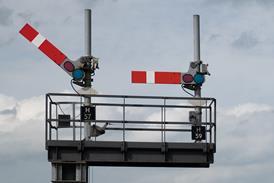
MONGOLIA: With German and Chinese interests already promoting new railways to tap Mongolia’s extensive mineral reserves, the Russians are now moving to strengthen their influence over the national rail network.
Russia’s Ministry of Transport has held a 50% stake in the Ulaanbaatar Railway (UBTZ) since the restructuring of the former Mongolian Railway in 2006-07, and this is now expected to be transferred to RZD.
Joint venture company Infrastructure Development Ltd was launched on May 14; it will be owned 50% by RZD, 25% by UBTZ and 25% by Mongolia’s state-owned mineral exploration company Erdenes MGL, and will have an initial share capital of 2·5bn tugriks (US$1·8m).
The deal was signed by RZD President Vladimir Yakunin, UBTZ Executive Director A Batbold and Chief Executive of Erdenes MGL B Ebenish. Yakunin said creation of the joint venture was the first phase of a project to develop the network, renew the fleet and build extensions to ‘promising mineral deposits’.
The preceding day, Russian Prime Minister Vladimir Putin held talks with his Mongolian counterpart Sanjaa Bayar about a joint venture for uranium exploration. The visit also saw co-operation agreements signed between the two countries’ transport ministries and between their nuclear energy authorities. RZD and UBTZ had signed their own co-operation accord in March.
According to Yakunin, RZD will fund through IDL a feasibility study for rail links to open up coal and copper reserves, and will buy the mining licences, leaving the Mongolian partners to develop the mineral operations. He suggested that the total investment could reach US$7bn.
Erdenes MGL is already active in the Tavan Talgoi region which holds the world’s largest untapped reserves of coking coal for steelmaking. It had earlier estimated the cost of developing the coalfield at US$2·4bn, and had reportedly invited Chinese, US and Australian investors to take a stake of up to 49% in the project.
In October 2007, Mongolia’s President Enkhbayar signed an agreement with former US President George W Bush for a US$188m grant from the US Millennium Challenge fund. The money was intended to support the creation of a modern heavy haul railway with 25 to 30 tonne axleloads to lower the cost of transporting minerals (notably iron ore and coal) to the Chinese border. That was seen as essential to make Mongolian exports commercially competitive with minerals imported from Australia.
However, UBTZ formally turned down the grant on April 28, after the Russian side reportedly halted an independent audit of the company’s accounts. Vice-Minister of Transport A Gansukh said the money was no longer needed as the Russians had offered a US$150m loan to fund fleet repairs and the purchase of Russian-built locomotives.




















